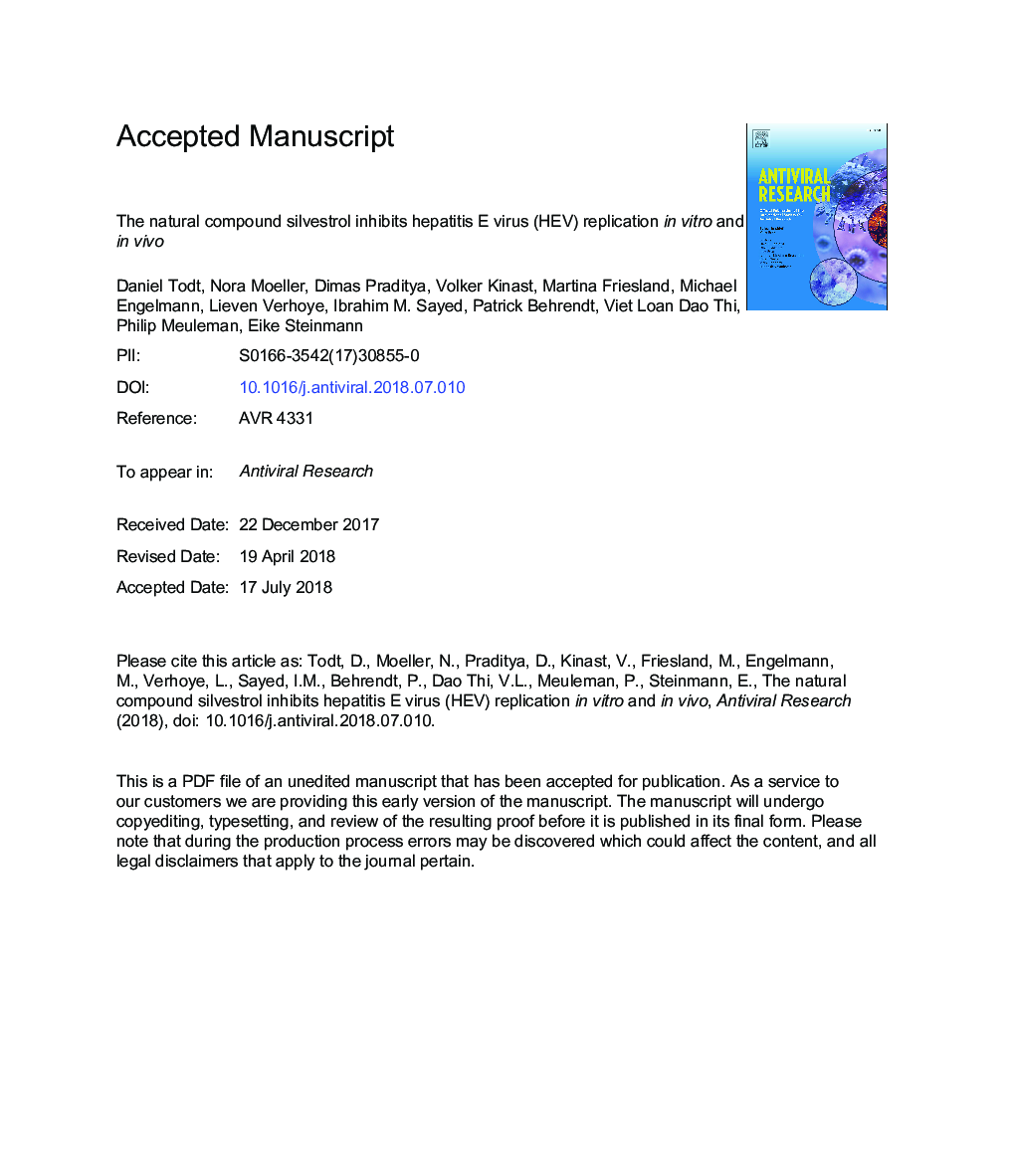| Article ID | Journal | Published Year | Pages | File Type |
|---|---|---|---|---|
| 8523038 | Antiviral Research | 2018 | 32 Pages |
Abstract
In this study, we evaluated the natural compound silvestrol, isolated from the plant Aglaia foveolata, and known for its specific inhibition of the DEAD-box RNA helicase eIF4A in state-of-the-art HEV experimental model systems. Silvestrol blocked HEV replication of different subgenomic replicons in a dose-dependent manner at low nanomolar concentrations and acted additive to ribavirin (RBV). In addition, HEV p6-based full length replication and production of infectious particles was reduced in the presence of silvestrol. A pangenotypic effect of the compound was further demonstrated with primary isolates from four different human genotypes in HEV infection experiments of hepatocyte-like cells derived from human embryonic and induced pluripotent stem cells. In vivo, HEV RNA levels rapidly declined in the feces of treated mice while no effect was observed in the vehicle treated control animals. In conclusion, silvestrol could be identified as pangenotypic HEV replication inhibitor in vitro with additive effect to RBV and further demonstrated high potency in vivo. The compound therefore may be considered in future treatment strategies of chronic hepatitis E in immunocompromised patients.
Related Topics
Life Sciences
Immunology and Microbiology
Virology
Authors
Daniel Todt, Nora Moeller, Dimas Praditya, Volker Kinast, Martina Friesland, Michael Engelmann, Lieven Verhoye, Ibrahim M. Sayed, Patrick Behrendt, Viet Loan Dao Thi, Philip Meuleman, Eike Steinmann,
